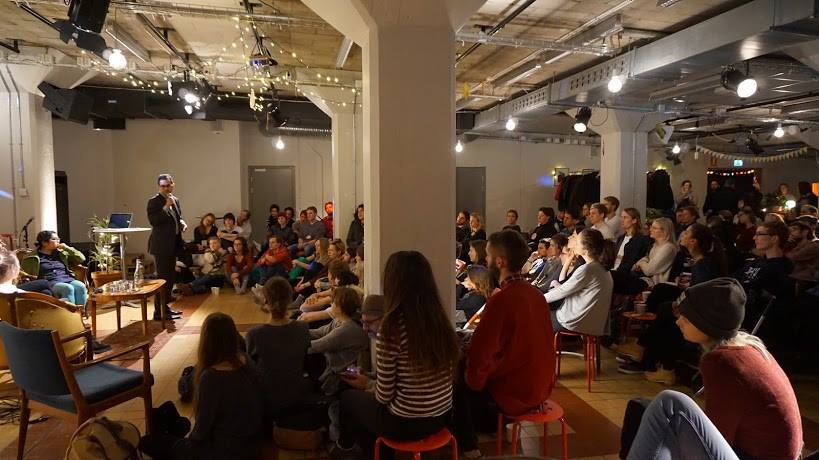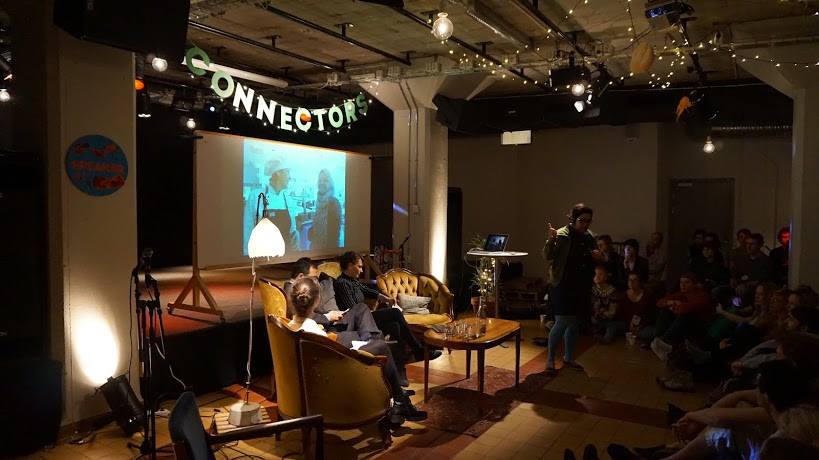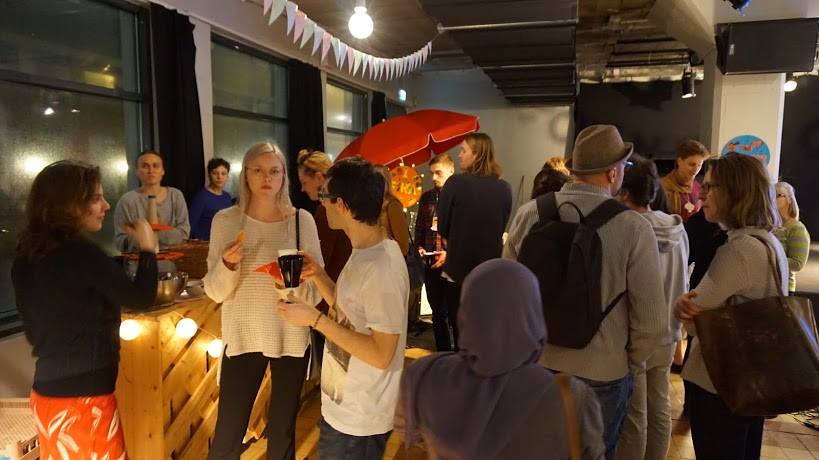At the end of January, in Malmö, Sweeden, a salon about food waste took place. Food waste experts from Europe, and community members joined together in a relaxed evening to mingle, enjoy music, and dive into the cross-sectional issues around wasting food.
Hosted by Connectors Malmö at start-up HUBn, a co-working space, speakers presented on the issue of food waste, followed by a guitar performance, all while dining and drinking. The organization has been been experimenting with events, projects and interventions to push citizen-driven change for three years. This being their 36th event, they seem to have found a magical formula!
“From around Europe, we’ve invited the leaders of the anti-food waste movement to Malmö to tell us how to stop being so trashy about food: from the grassroots to international policy.”
They were able to draw a crowd of 100 people including students, and industry professionals. With a diverse audience, rich discussions were guaranteed.
Speakers included Arash Derambarsh (France) who led a campaign that forced all French supermarkets to donate their waste food to charity, Zeenath Hasan (Sweden) who runs a local, grassroots waste food catering company, and Sanne Stephansen from Copenhagen’s Rub&Stub who is working to re-brand waste food as something much more appealing.
To learn more about the models of change the featured speakers generated, please take a look at the webpages listed below. 
Hasan spoke about perceptions of food waste and meeting the demand with appropriate recovery capacity.
Do you agree that if it doesn’t make it into your belly, it should be counted as food waste? That is Hasan’s belief. In North America, we’ve largely accepted that if food is composted, that’s a-ok. Is this messaging diluting our ability to take more radical actions, such as donation and reduction policies being instated around Europe?
Stephansen noted that, ironically, one of the struggles in the European anti-food waste movement is an inability to take-in enough food waste. Restaurants like Rub & Stub are being flooded with more surplus produce than can be used, but they also don’t want to see it wasted. This highlights an opportunity for more restaurants to open using the same model of serving rescued food.
And finally, Derambarsh invited those located in Europe to sign his petition try to end food waste. They almost have 800,000 signatures, and want at least 200,000 more!
Inspired by the Connectors Malmö Event? Interested in hosting your own event? Or, taking food waste action in your community?
You can now order a guide book about this style of work. Charlotte Ormston, Events Expert at Connectors Malmö, was kind enough to share some experts tips just for our blog readers. Here they are!
How to go about organizing change making events:
eg. A cosy and relaxed event with music and snacks is good for getting people to talk to each other and listen to information but a very structured event with time-constraints on activities might be good for pushing people to come up with project ideas quickly.
Explore More At:
Connectors: www.
STPLN: www.stpln.se
Arash Derambarsh: twitter.
Rude Food: www.rudefood.se
Rub & Stub: www.
Category: food waste news
Tagged: Change Making, Events, food rescue, food waste, just eat it, restaurants, Sweeden, wasted food
Bookmark the permalink.









